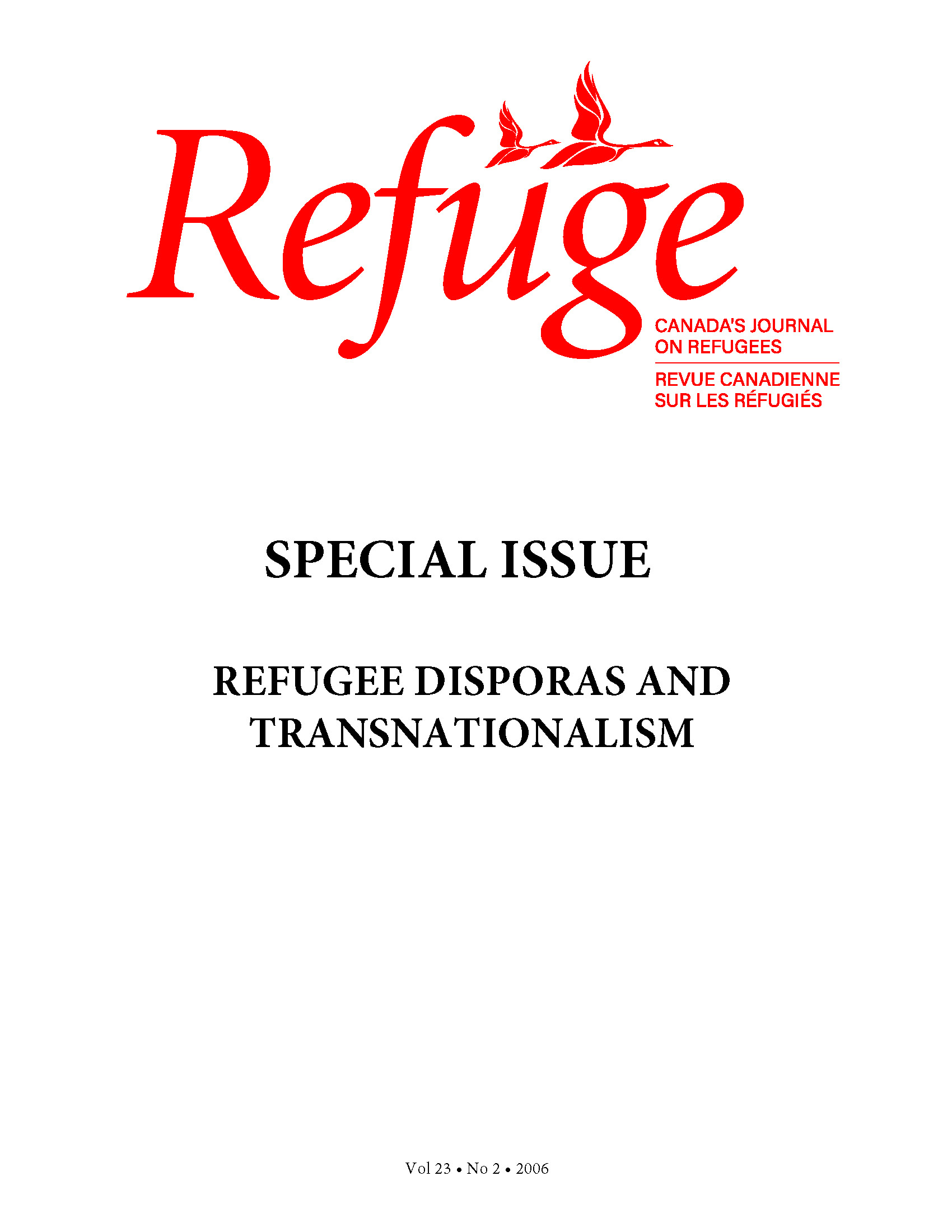The Impact of Policy on Somali Refugee Women in Canada
DOI:
https://doi.org/10.25071/1920-7336.21354Keywords:
Canada, Somali refugees, Somali women, refugee women, transnationalism, policy, discourse, gender, marginalization, healthAbstract
This paper explores the ways in which government policy and public discourse have operated to enhance and maintain the liminal status of Somali women refugees in Canada, and the ways in which Somali Canadian women have resisted these efforts in order to create meaning and a place for themselves and their families in North America. The policies and practices that obliged many Somali women to wait three to five years to apply for permanent residency status, Eurocentric definitions of the family that constrain family unification strategies, and economic marginalization due to lack of recognition of foreign credentials have had cumulative adverse effects on the health and well-being of Somali women in Canada.Metrics
Downloads
Published
How to Cite
Issue
Section
License
Copyright (c) 2006 Denise L. Spitzer

This work is licensed under a Creative Commons Attribution-NonCommercial 4.0 International License.
Refuge authors retain the copyright over their work, and license it to the general public under the Creative Commons Attribution-Non Commercial License International (CC BY-NC 4.0). This license allows for non-commercial use, reproduction and adaption of the material in any medium or format, with proper attribution. For general information on Creative Commons licences, visit the Creative Commons site. For the CC BY-NC 4.0 license, review the human readable summary.







